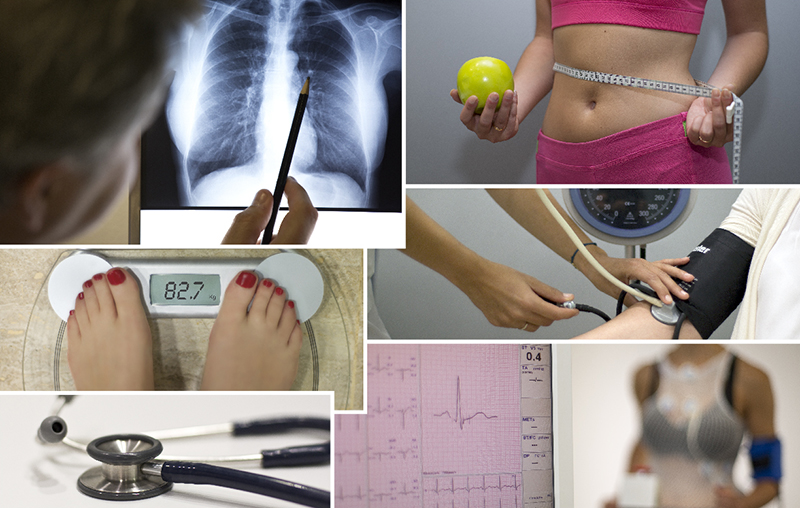
 Diagnostic Units
Diagnostic Units
High blood pressure / Hypertension
You may suffer hypertension and you may not know it.
Did you know that 40% of patients do not know they suffer from high blood pressure?
Hypertension (HTA) does not always cause symptoms that can alert the patient, like headache or dizziness. Regular BP control will help us to identify hypertension.
What is blood pressure?
It is the pressure of blood against the arterial circulatory system. Each time the heart beats, it pumps blood into the aorta. This is called systolic pressure. When the heart relaxes, blood pressure reduces and it is called diastolic pressure.
What is High Blood Pressure (HBP)?
It is the BP elevation above normal values (greater than or equal to 140/90 mmHg).
What are the causes of Hypertension?
90-95% of hypertensive patients do not have a cause. It can be associated with overweight people, stress, sedentary lifestyle or genetic inheritance.
In contrast, in the 5 to 10% of patients, HT will be associated with other diseases, such as kidney disease, hormonal disorders, sleep disorders, side effects of drugs etc. Then it Is called secondary hypertension..
What are the symptoms of hypertension?
Sometimes, symptoms are not present and hypertension is found on a regular examination. In other situations, it is found as a result of the presence of headaches, spontaneous nosebleeds, dizziness, palpitations, breathlessness, stress.
What are the consequences of High Blood Pressure?
Hypertension can cause damage to the arterial wall and promote the development of atherosclerosis. Over the years, when left unchecked, can impact on so-called target organs:
- Heart increasing its thickness and size and / or promoting atherosclerosis in the coronary arteries (myocardial infarction and angina pectoris).
- Kidney: Kidney failure occurs.
- Retina: produces visual abnormalities.
- Brain: stroke canhappen in the form of cerebral infarction or brain hemorrhage.
¿How Hypertension controlled?
It is important to check your blood pressure (BP) regularly and to go to see your doctor to achieve an optimal control of your BPA.
In many cases, it is advisable to perform ambulatory blood pressure monitoring (ABPM) for a more accurate blood pressure control over a 24 hrs period. The ABPM can evaluate and analyse treatment changes to optimize blood pressure control with dose and time of administration changes.
How is hypertension treated?
There are several methods:
- Lifestyle changes.
- Drug treatment.
- Renal denervation for resistant hypertension.
Renal denervation
What is renal denervation?
Denervation or renal ablation is a new technique for the treatment of “resistant arterial hypertension”. It is indicated in those who fail to control high blood pressure despite taking three or more antihypertensive drugs.
What is renal denervation?
Through the application of radio frequency energy on renal sympathetic nervous system, the sympathetic activity is reduced and thus reducing blood pressure values.
How is it done?
It involves inserting a catheter through the arm or groin up to the renal arteries. The catheter heats up to 40-50 degrees celsius (radio frequency) and disconnects nerve terminations (renal denervation of sympathetic nerves). This procedure is performed under sedation, and the patient should remain in hospital for 24 hours.
When is renal denervation indicated?
Renal denervation is indicated in patients between 18 and 85 years of age, who suffer from resistant hypertension and in whom secondary hypertension and severe chronic renal disease have been ruled out.
What are the most common complications?
It is a minimally invasive, effective and safe procedure with a low incidence of complications. The complication rate is low.
What can be achieved with this intervention?
The objective is to reduce blood pressure and to suppress the need for the use of antihypertensive drugs.




